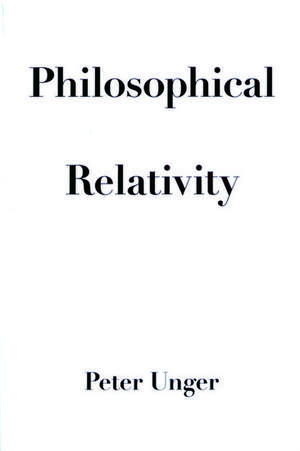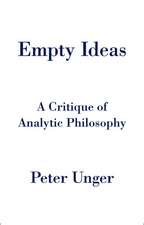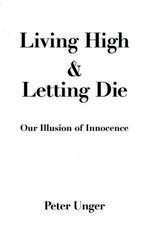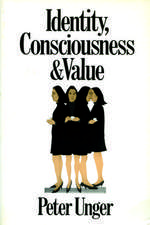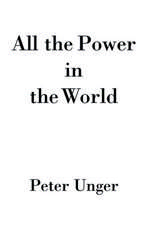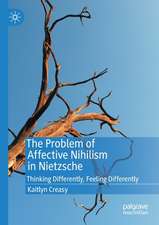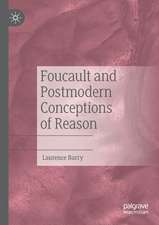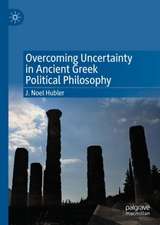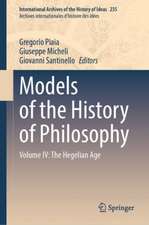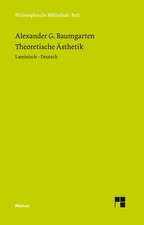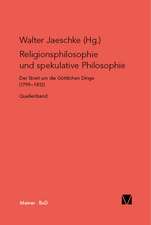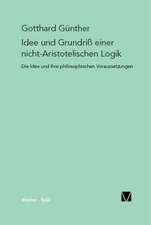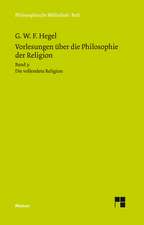Philosophical Relativity
Autor Peter Ungeren Limba Engleză Paperback – 7 noi 2002
Preț: 389.82 lei
Preț vechi: 482.33 lei
-19% Nou
Puncte Express: 585
Preț estimativ în valută:
74.59€ • 77.89$ • 61.59£
74.59€ • 77.89$ • 61.59£
Carte tipărită la comandă
Livrare economică 04-10 aprilie
Preluare comenzi: 021 569.72.76
Specificații
ISBN-13: 9780195155532
ISBN-10: 019515553X
Pagini: 144
Dimensiuni: 229 x 152 x 13 mm
Greutate: 0.22 kg
Editura: Oxford University Press
Colecția OUP USA
Locul publicării:New York, United States
ISBN-10: 019515553X
Pagini: 144
Dimensiuni: 229 x 152 x 13 mm
Greutate: 0.22 kg
Editura: Oxford University Press
Colecția OUP USA
Locul publicării:New York, United States
Recenzii
"OUP has done well to reissue Peter Unger's books in epistemology, both Ignorance and Philosophical Relativity. Unger follows the argument to great depth, wherever it may lead, and the reader who follows along will be amply rewarded, which shows how impressively fresh and relevant this work remains after all these years."--Ernest Sosa, Brown University
"This is an intelligent and highly original critique, clearly and even gracefully written, with a refreshing absence of pedantry."--Sir Peter Strawson, Oxford University
"First-rate philosophy, philosophy as it ought to be done."--Gilbert Harman, Princeton University
"In his last book, Peter Unger set out to persuade us of a thorough-going skepticism; in the present one, he sets out to persuade us that it is fundamentally indeterminate whether (for example) the thorough-going skeptic of the person of common sense is right. But even if this is his newest doctrinal anarchism, there is nothing anarchic about the style of Philosophical Relativity. The argument is well-organized, and the exposition is lucid. Nor is there anything bombastic in Unger's medium to match his would-be devastating message; the reader is coaxed along gently but persistently."--Jennifer Hornsby, University of London
"Current debates about contextualism in epistemology begin with Philosophical Relativity, where Unger gives the term 'contextualism' the meaning that, in many philosophical circles, it enjoys today, and gives the position designated by the term its first serious and systematic treatment. Few are likely to accept Unger's 'relativistic' conclusion that the advantages and disadvantages of contextualism and its rival, invariantism, balance out in such a way that there simply is no fact of the matter which is the correct theory, but all who want to think seriously about the issue should confront the challenging arguments in this seminal book."--Keith DeRose, Yale University
"This is an intelligent and highly original critique, clearly and even gracefully written, with a refreshing absence of pedantry."--Sir Peter Strawson, Oxford University
"First-rate philosophy, philosophy as it ought to be done."--Gilbert Harman, Princeton University
"In his last book, Peter Unger set out to persuade us of a thorough-going skepticism; in the present one, he sets out to persuade us that it is fundamentally indeterminate whether (for example) the thorough-going skeptic of the person of common sense is right. But even if this is his newest doctrinal anarchism, there is nothing anarchic about the style of Philosophical Relativity. The argument is well-organized, and the exposition is lucid. Nor is there anything bombastic in Unger's medium to match his would-be devastating message; the reader is coaxed along gently but persistently."--Jennifer Hornsby, University of London
"Current debates about contextualism in epistemology begin with Philosophical Relativity, where Unger gives the term 'contextualism' the meaning that, in many philosophical circles, it enjoys today, and gives the position designated by the term its first serious and systematic treatment. Few are likely to accept Unger's 'relativistic' conclusion that the advantages and disadvantages of contextualism and its rival, invariantism, balance out in such a way that there simply is no fact of the matter which is the correct theory, but all who want to think seriously about the issue should confront the challenging arguments in this seminal book."--Keith DeRose, Yale University
